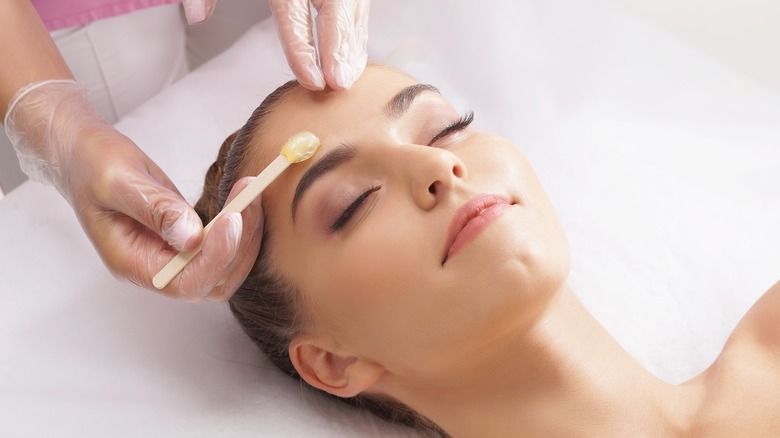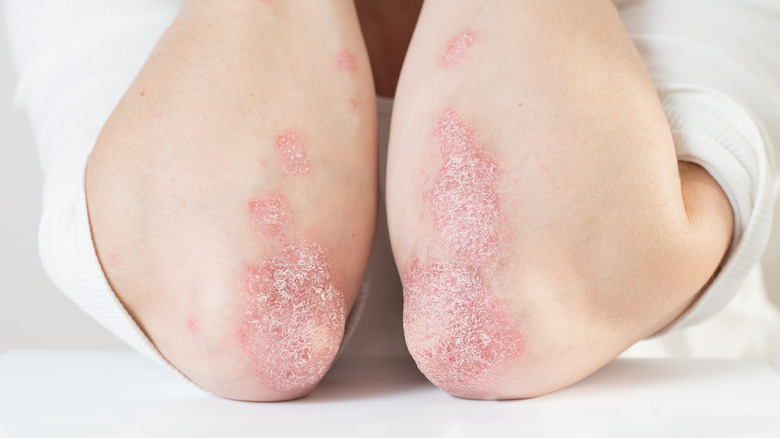How To Safely Remove Hair When You Have Psoriasis
Psoriasis is a painful skin disease that causes severe irritation, rashes, and dry, scaly skin appearance, per Mayo Clinic. These dry patches usually develop on the elbow, knees, and scalp. Unfortunately, this is a lifetime disease and so far, has no known cure. Keep in mind, psoriasis can have a detrimental effect on your quality of life. People with psoriasis may be unable to sleep well, making it difficult to focus throughout the day. According to WebMD, it mostly affects adults and isn't contagious. However, it can be hereditary and passed on from generation to generation.
Approximately 7.5 million Americans experience some type of psoriasis, typically in adults between 45 to 65 years old, as per the American Academy of Dermatology Association (AAD). There are various types of psoriasis, and each has different symptoms (via WebMD). But overall, psoriasis may cause patches of crust, redness on the skin, and dents or discoloration in the nails or toes. At times, psoriasis regions may even bleed.
Safe hair removal tips if you have psoriasis
There are a variety of hair removal techniques used by people around the world. Some rely on razors, threading, or waxing, while others choose modern methods, such as laser hair removal. In an interview with Everyday Health, Dr. Stephen Stone, a professor of dermatology at Southern Illinois University School of Medicine, explained that psoriasis can be easily triggered by any injury or distress on the skin. Since most of these hair removal methods can cause cuts or wounds on the skin, patients with psoriasis need to be extra careful when trying to remove hair.
According to Healthline, those with psoriasis need to use a moisturizer or gel before shaving, as it can reduce the chances of cuts. Healthgrades suggests that if you want to remove facial hair through shaving, it's important to ensure you avoid the affected areas with lesions. Plus, you may want to dampen the hair with warm water and shave in the direction of hair growth to reduce cuts. Experts recommend using an electric razor rather than a manual one (per Healthline). Waxing, on the other hand, is not usually encouraged for those with psoriasis. However, if you do want to attempt it be sure to test out the wax on a small section of skin and avoid applying any antibiotics or retinoids prior to waxing.


